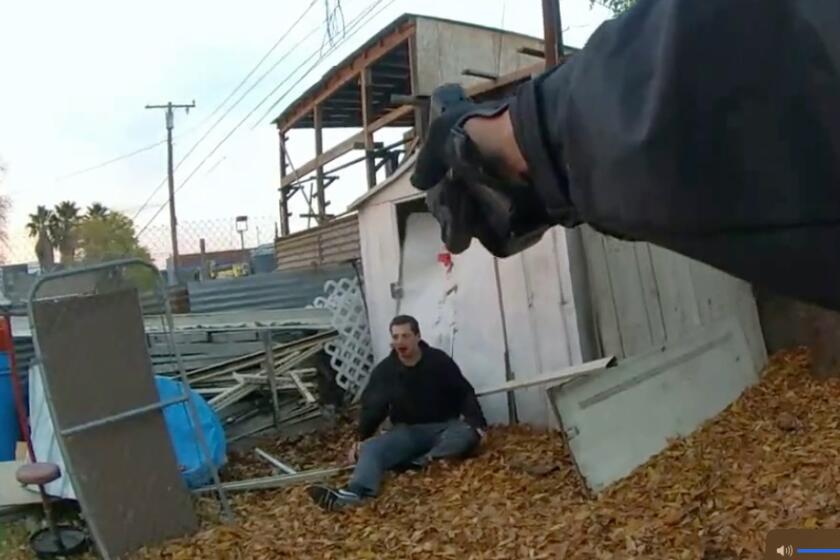U.S. Berates Kaiser Over Kidney Effort
- Share via
Virtually every part of Kaiser Permanente’s massive kidney transplant program in San Francisco failed patients, according to a scathing federal report released Friday.
The program, which has about 2,000 Northern California patients on its waiting list, was poorly planned, poorly staffed, poorly run and poorly qualified to care for transplant patients, wrote inspectors for the U.S. Centers for Medicare and Medicaid Services.
And as the program faltered again and again through late 2004 and 2005, no one at the giant HMO interceded — or even seemed aware that patients were at risk, the report said.
On May 12, Kaiser abruptly announced the program’s closure after revelations in The Times that the HMO had endangered up to 1,500 patients when it forced them to move to the start-up program in fall 2004. They had been receiving treatment, under contract, at established University of California centers.
According to the newspaper’s analysis, twice as many people died on the waiting list of Kaiser’s program as got kidneys last year. The statewide pattern for transplant centers was the reverse: Twice as many patients received kidneys as died.
Hundreds of patients were not properly transferred from their old programs to Kaiser’s, leaving them in limbo with little hope of receiving new kidneys. And two dozen patients who had been treated at UC San Francisco were denied the chance to receive kidneys that were ideally matched to them because Kaiser directed the university to reject the organs during the transition between programs.
The federal inspection essentially confirmed The Times’ findings. “There was no indication that patients were informed of their rights or of other available options as well as potential consequences of the transfer,” the report said.
Kaiser remains out of compliance with key standards, including oversight, management and protection of patients, regulators say, and could ultimately lose federal funding for end-stage renal patients at its San Francisco medical center if it does not make changes.
But because Kaiser, the nation’s largest HMO, has already announced that it will close the kidney transplant program as soon as all of the patients are moved to centers at UC Davis and UC San Francisco, the critique has little practical effect.
Indeed, in its response to regulators, Kaiser did not admit or rebut the accusations. Rather, it repeated time and again how it hopes to safely shift its patients back to the two UC transplant centers.
“We are committed to meeting the care needs of our kidney transplant patients,” Kaiser spokesman Rick Malaspina said. He would not comment on details of the report.
Kaiser will continue to provide transplants to patients until all are transferred.
The HMO confirmed Friday that Mike Alexander, 55, the administrator at the San Francisco hospital where the transplant center is based, is retiring.
The harsh assessment by federal regulators reignites the controversy over Kaiser’s foray into kidney transplants just as it had been dying down.
Kaiser patients had no choice but to participate in the program because the HMO generally requires that its patients be treated at Kaiser hospitals by affiliated Permanente medical group physicians.
When the program was launched, Kaiser officials said bringing transplants in-house would provide patients with coordinated care among physicians, labs, pharmacies and hospitals.
Instead, the inspectors found that three registered nurses had “little or no knowledge of the assessment and care of pre-transplant patients.” In addition, the inspectors said, there was no evidence that anyone made sure the nurses were able to do their jobs.
The same was true of the data coordinator whose job was to process patients’ forms and ensure that their wait time was properly transferred. Her personnel file “revealed the lack of written evidence of any training” in how to use the computer system for the United Network for Organ Sharing, which oversees waiting lists and organ allocation.
In an interview with inspectors, the report said, the clerk said the only training she had in the use of the network’s database was a one-hour session by phone.
Regulators were particularly concerned that Kaiser did not assess the quality of its transplant program. The HMO had a plan that called for officials to look at such factors as how long it took to put patients on the waiting list, how long it took them to get a kidney and reasons for any post-transplant complications. And during the federal review, transplant center staffers repeatedly stressed to inspectors that their post-transplant survival rates were “good.”
But the report said, “There was no evidence that operations and other components of the program were being reviewed and evaluated to ensure the delivery of quality care to patients.”
Moreover, the report said, patients being transferred from UC Davis were misled by the HMO, which did not tell them that moving to Kaiser’s San Francisco program could extend their waiting times substantially. That is because donated kidneys are harder to come by in the San Francisco region.
In interviews with inspectors, transplant medical director Dr. Sharon Inokuchi and lead transplant surgeon Dr. Arturo Martinez maintained that the transfer to Kaiser’s program did not impair patients’ chances for a transplant — and that no patient was disadvantaged.
But the report demonstrates that such an assertion was false.
At no point did Kaiser assess “its ability to continue to meet the needs of the increasing number of patients and those others already in the program, to prevent or minimize service interruptions and facilitate efficient delivery and continuity of care,” the inspectors said.
Charles Ornstein may be reached at charles.ornstein @latimes.com and Tracy Weber at tracy.weber@latimes.com.
More to Read
Sign up for Essential California
The most important California stories and recommendations in your inbox every morning.
You may occasionally receive promotional content from the Los Angeles Times.










